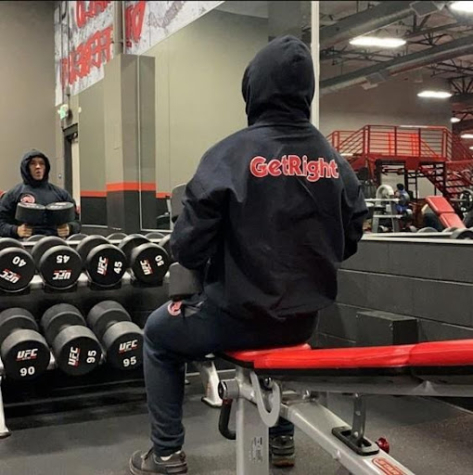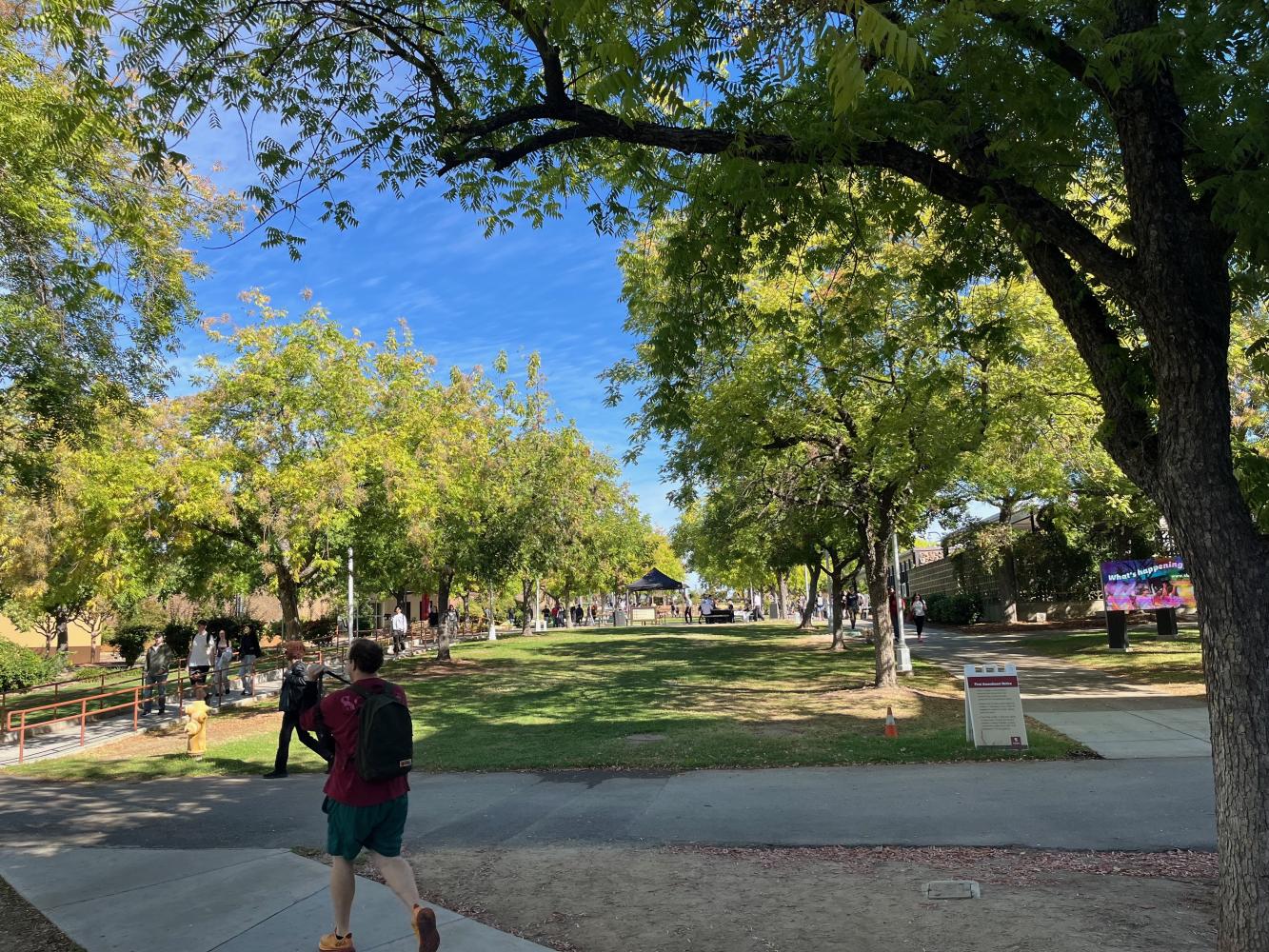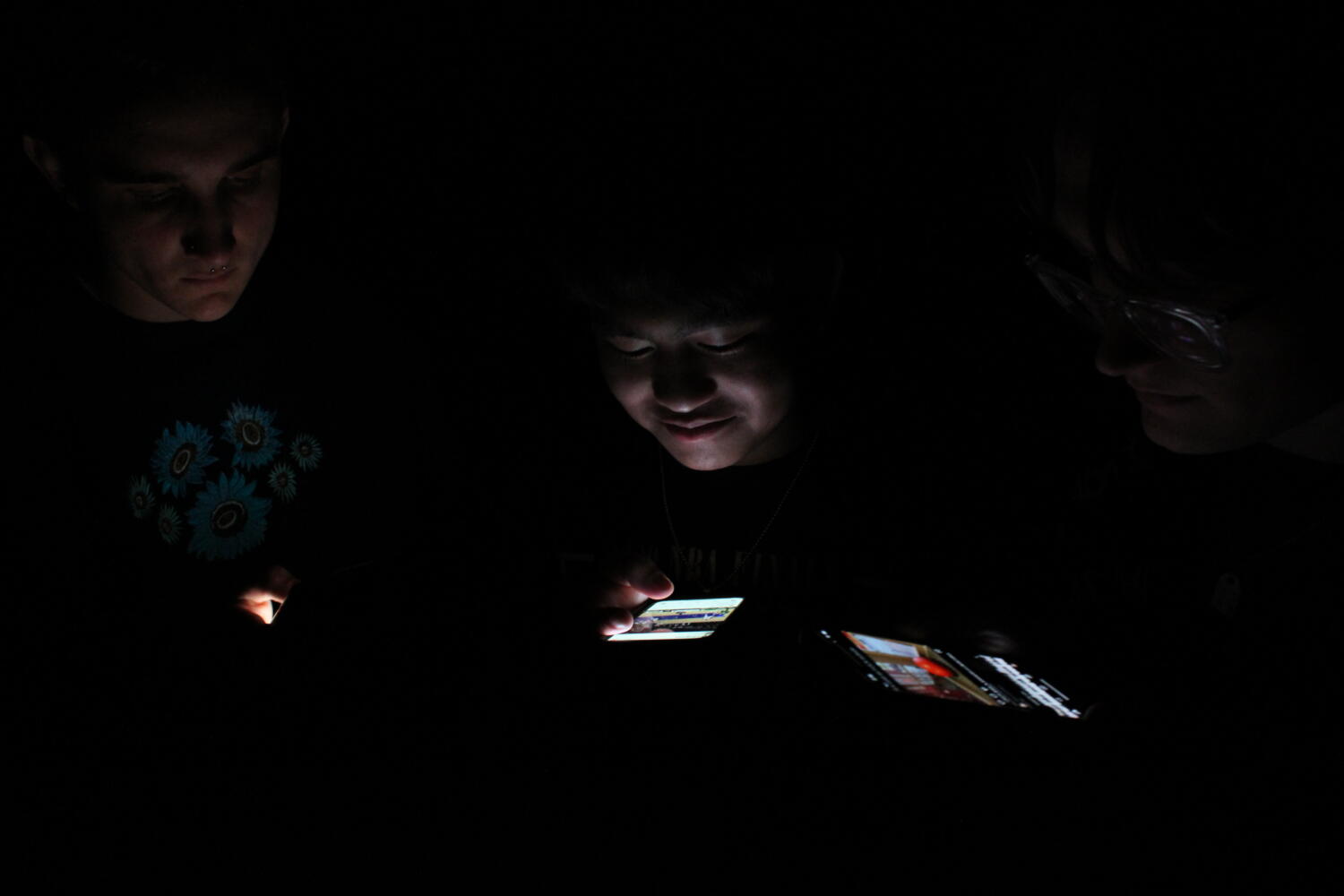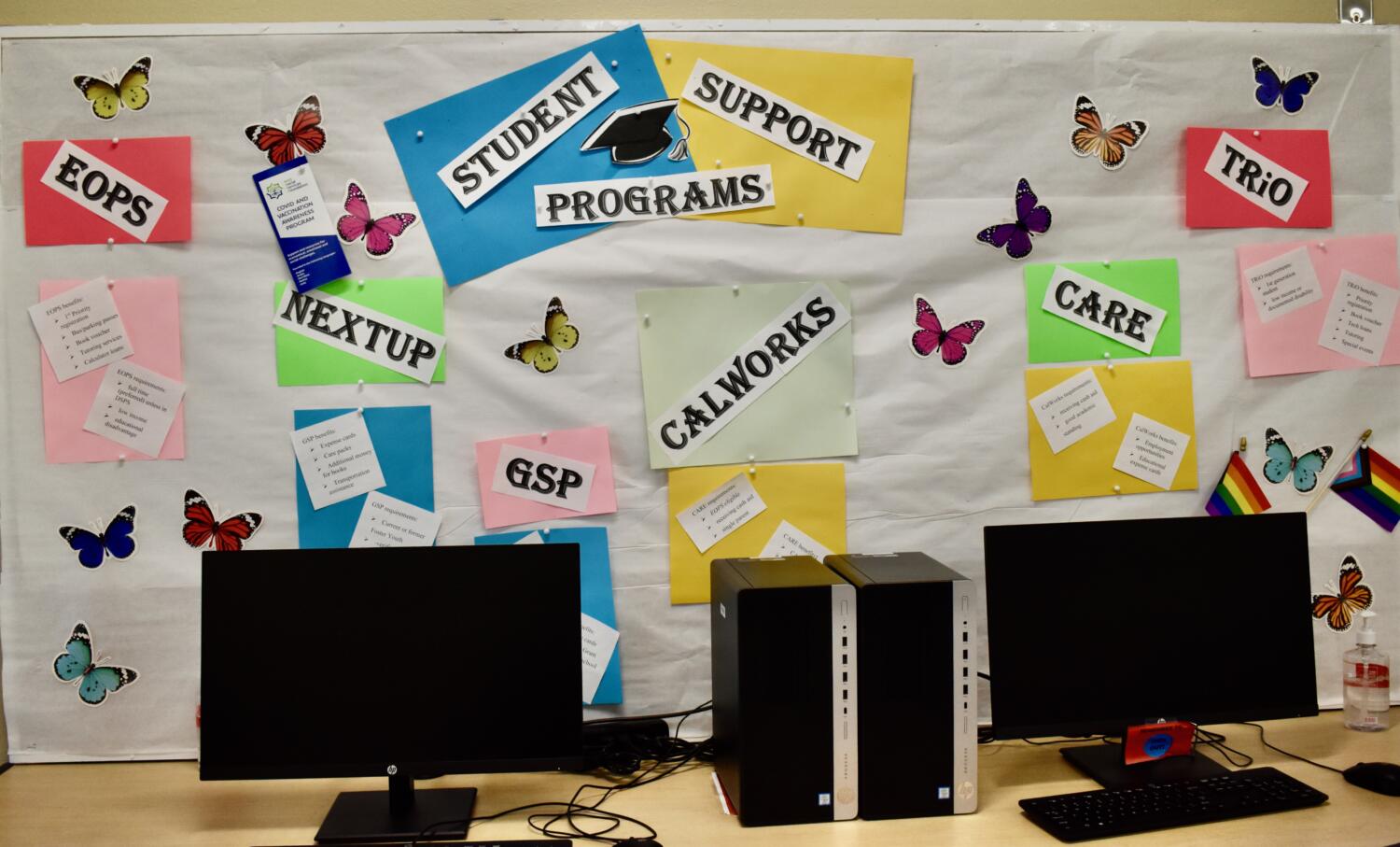With the current state of the world, it is inevitable that anyone, especially a college student, will encounter stress. While stress may be positive in some situations, building motivation and enabling goal-setting tendencies, it may also cloud our minds and invite anxious or depressive behaviors.
Seeds of Addiction, Roots of Recovery
“When you’re using, it’s kind of a lonely thing,” Holly began, her words trailing off into a mix of memories. On a breezy, sunlit day in March 2024, Holly sat outside the Sierra College Rocklin campus library on the veranda for an interview with members of this year’s California Humanities Emerging Journalists team.
Harm Reduction: Support, not Stigma
As I opened the glovebox of my mom’s car looking for a tissue, out spilled a handful of individually packaged nasal sprays. Confused, I picked them up and analyzed the product. “Those are Narcan,” said my mom, a nurse at a local correctional facility, “Take a few, put them in your purse. They can save a life.”
How Sierra Baseball is Working to Avoid Injuries
For most people an injury is just an inconvenience. Something that slows them down for a few weeks, or maybe a couple months, though rarely does it end their career. Athletes, however, do not qualify as “most people.”
Despite frequent conditioning and training, athletes are not immune to injury. Instead, it seems the harrowed “injury bug” haunts both professional and amateur athletes. “Injuries are starting to become a bigger part of the game,” Tyler Kersey, a Sierra College sophomore baseball player, said during an interview on March 18. He continued, “You see it a lot in pitchers, [especially] arm injuries.”
As it turns out, Tyler is right. Continue Reading
Meditation for the Anxiety Generation
College students are often stressed and some even have anxiety and depression due to the pressures they face. According to Mental Health Therapist and Counselor at Sierra College, Jamie Chin, “When we have anxiety and stress we have a lot of negative thinking going on.” And in describing Gen-Z specifically, she said, “I’m just calling you guys the anxiety generation.” So what can we do?
Social Media: Why the Bad Reputation?
What are the effects of social media use? Are they negative, or positive? In the past decade, it has become an increasingly substantial part of our lives. Many spend hours every day scrolling through their phone looking at Instagram or Twitter. But how is this affecting our mental health? And how does it affect students, more specifically?
Equity in Action with Sierra Resources
It’s a quiet afternoon on March 16, 2023 and I am sitting on a large, grey couch in the middle of the Basic Needs Center on the Sierra College, Rocklin campus. Chatter comes from behind the front desks that face windows looking out into a small courtyard. Claire Masztakowski, a student employee, turns away from her conversation to face two young students walking through the door. She types their ID numbers into the computer, and the students go peruse the Food Pantry. This is one of many spaces around campus with resources that support students to further equity.
Continue Reading
Beyond Meals: The Sierra College Food Pantry
The financial weight of groceries can cause stress for students and their families. The Sierra College Food Pantry was started as a labor of love by the late Student Life Campus Coordinator, Tim Haenny (1957-2017). Today students and staff carry on the legacy to make sure no student goes hungry.
Finding the Balance: College, Health, and the Gym
Many college students struggle to find a healthy balance in their academic lives. Between staying in shape by going to the gym and pursuing higher education, students will often compromise their living for schoolwork. It can feel like an impossible endeavor considering the amount of coursework being piled on students during the average college semester. But students can learn some simple truths of healthy living from professionals.
Exiting the center stage of the octagon, a professional Ultimate Fighting Championship (UFC) fighter and full-time fitness coach training out of Rocklin CA, Orion “Galaxy” Cosce shares his knowledge of how to take care of your mind and body as a busy college student.
“It doesn’t matter how busy I am, I need to try to get at least one gallon of water a day, I need to be able to eat the proper nutrition.”
There is no doubt that finishing college coursework is important, but when it starts negatively affecting a student’s mental health to finish an assignment, it raises the question of how students can incorporate a healthier lifestyle into their schooling. The answer to this question is complicated and imperative on the individual, but if it was easy everyone would be doing it by motivating themselves to go to the gym.
Schoolwork and Health, Evaluating Priorities
Motivation is the keyword when students apply every ounce of energy into completing classwork. Many students are highly motivated in pursuing and attending college but at a cost. Common examples highlighted by the award-winning publication LiveScience found frequent health defects like sleep deprivation, depression and stress are present in dangerously high quantities among college students. And it’s no wonder students are having these health defects when everything, sometimes even eating, has to be put aside in order to finish an assignment.
“A lot of kids, they, you know, survive off of like noodles and stuff like that, they start to eat only once a day…They’re not really getting the water intake that they need… they kind of lack on the sleep because they’re, you know, most kids are taking Ritalin to try to help them stay awake and do all their academic studies. But the problem is they’re actually taking a negative health turn,” Cosce said.
There needs to be a new evaluation of priorities. While turning in school work on time is important, sleep and nutrition are vital parts of a student’s success. The benefits of a healthier lifestyle aren’t just in a student’s physical well-being, but also a mental one. For example, the most common effect of sleep deprivation is a disruption in the brain’s ability to perform and carry out tasks such as studying for that upcoming exam. A healthier outlook to a student’s living would help their academics in the situation, not just get in the way.
These health defects are common enough that students have surely noticed them on their own, and some students reading this are probably experiencing them at this moment. So where are the solutions? Here is our professional fighter’s advice.
Multiple Paths to A Healthy Lifestyle
How do you go to the gym when you are constantly busy? What exactly should I be doing at the gym or at home? Do I have to be there for hours? Students who may not be initiated in the land of exercise have all of these questions and more when they think of going to the gym. Cosce has answers to many of these questions:
“If your college has a gym, take one hour of your time, or 30 minutes of your time. If you’re doing a high-intensity workout, no more than 30 to 40 minutes. If you’re doing a strength program, no more than an hour to an hour and a half and literally, that’s all you need once a day, and you’ll feel a lot better and a lot healthier.”
So the expert fighter tells the average college student to start with thirty minutes a day, that’s the time needed to begin. What should a student be doing in those thirty minutes? Well, that’s the more personal part as every individual’s needs and health goals will be different. The Ultimate Beginner’s Guide to the Gym goes down the list of times to go, what to wear, explanations of the machines in a typical gym, and even personal health conditions to consider when deciding to exercise.
Although the article presents material for beginners, it includes valuable information on specific machines and when to use them, as well as tips for any aspiring health nut. Almost everything is handed to you when analyzing this information, the next step is to apply these forms of guidance into action, and Cosce has lots of guidance on action.
“You just want to get a good workout in and just find yourself a good area where you’re going to either A) have friends to go with you to help push you if you need that or, you know, maybe a potential personal trainer, or B) if you have that self-motivation already, you just got to remember, take 30 minutes to an hour every day to get that training session in.”

As a professional fighter, Cosce goes through the motions of training and exercising in preparation for a fight knowing that his health is imperative to his success. In the form of a role model, he wants students to be aware of the benefits of going to the gym as a whole, not just for the octagon.
He knows what it takes to achieve goals that at first seem out of reach, with each and every fight preparing him to move on to the next step when a new opponent appears. He applies the same principle to a college student’s time management and constant planning to prepare them for an upcoming assignment.
It takes more than the average work of consistently going to the gym to be a fighter like Cosce, but not everyone has to train or religiously go to the gym. It’s important to take care of both your mind and body by practicing good habits now, such as having a proper sleep schedule and eating three meals a day.
Cosce lives by a schedule that is best suited for him to eventually knock out any opponent that comes his way. From proper sleeping habits to meal prepping, he takes calculated steps in preparation for upcoming fights. As a personal trainer, he helps others achieve individual goals by guiding them to success.
As the saying goes, you can lead a horse to water but you can’t make it drink.
Only students themselves can make the change to a healthier lifestyle. Remembering to eat and sleep are necessities to continue living a happy and hopefully, less stressful life through college. Cosce hopes that his example can help others looking for success in health and college achieve their goals.
Editor’s Note
If you’re looking to improve your own health while enrolled at Sierra, the College has athletic facilities to support its many student teams and they typically have open hours for general student use. There are also classes to support holistic learning such as yoga and meditation that are offered every term. Find them offered online and on-ground in the class schedule. Turn to the Kinesiology department and the course listings under “KIN” for courses like these along with weight-lifting, dance, and others. Students have access to health services through the Health Services department that offers support for mental, emotional, and physical health. Sierra College provides assistance with immunizations, injury evaluation, mental health resources including counseling, as well as food aid to support a healthy life-style through the on-campus food pantry. Most students also qualify for CalFresh and a Wolverine Meal Deal.

Written by Angel Chavez | Featured Photo by Katelyn Vengersammy
An Alternative For Everyone
There’s a saying on how people don’t tend to appreciate what they have until it’s taken away from them. I didn’t really start to appreciate dairy products until I first got the news that I would have to cut them all out of my diet. Having been diagnosed with Inflammatory Bowel Syndrome/Disease (IBS/IBD), I should have been happy to finally have something that would make my life on the regular, easier. Instead, I thought of cheesecake- a dessert I had only recently found a love for, and one I would no longer get to have. It was cheesecake that led me to search the Rocklin area for anyone who might sell a decent dairy-free alternative. I found better than that. Continue Reading
Easing Food Insecurity at Sierra
On the morning of April 14, 1979 in Monrovia, Liberia, residents woke up to an organized demonstration by a group of progressive Liberians. The collective was opposing the rising price of the nation’s staple food, rice. This demonstration led to a massive destruction of property, looting, and even death. All because of the shortage of rice. Still, the government of that time increased the price. Continue Reading
Study Drugs: Be Informed and Consider the Alternatives
It’s no secret that the college experience has included experimentation with drugs. When I think of drug use on campus, I picture sitting in circles on a grassy hill, smoking joints, trading revolutionary ideas, and experimenting with psychedelics like LSD. Fast forward a few decades and what you get is a complex drug problem that exists in colleges around the country, and the new juggernaut is the prescription drug trade.











